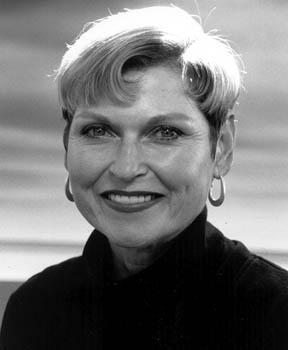Cynthia Martin’s Solo Flight Addresses Bipolar Disorder

Certain illnesses become popular social issues-the “obesity epidemic” being a good example. The discussion around mental illness, however, tends to be stifled no matter what the political or social climate, and sufferers rarely have the will or the opportunity to speak out and inform the community. They are stigmatized, they seldom receive all the help they need, and their families suffer.
Santa Barbara writer Cynthia Martin, the sister of a man with bipolar disorder, has broken that silence. Her book Solo Flight is a deeply touching, often very funny, and terrifyingly naked account of her brother Milo John Reese’s battle to control his own mind and his own life, culminating in his flying a small plane to Cuba, an escapade that made the national news. Martin has provided something very few books on the subject have to offer: a perspective that balances her grief and concern for her brother with her own anger for the disruption his wild activities have caused in her life and that of their family.

One of the most unfortunate aspects of bipolar disorder is its frequent occurrence in people with talent, intelligence, and charm, who would otherwise be successful in their endeavors. Martin’s brother was an athlete, an excellent student, and popular with his classmates in school, but his manic episodes-the times during which he was most able to use his talent and energy-were always far too overblown to be productive.
Martin sets up the reader to feel the tragedy of Reese’s developing condition by describing their early childhood in some detail. Interspersed within each chapter are quotes on bipolar disorder from a staggering array of psychologists and psychiatrists. It’s clear that she spent an inordinate amount of time not only researching and writing the book, but also attempting to understand how her brother’s mind works, and how to help. This book is an autobiography of sorts; it’s also a biography, an informational case study on bipolar disorder, and more than that, a kind of manifesto. Solo Flight is an attempt to force readers, and the public, to confront this issue that ruins the lives of so many sufferers.
In a recent phone interview, Martin mentioned the emptying of the nation’s mental institutions in the 1970s. “The communities,” she said, “were supposed to take up the slack-and the funding was never made available.” As a result, those with a mental illness are frequently homeless, including her brother at times. He has also been in and out of the legal system over the years. As of this writing, Reese is awaiting a hearing in Florida for yet another infraction. Of course, all of his crimes have been the result of manic episodes focused on a desire to initiate social change-his flight to Cuba was motivated by a plan to kidnap Fidel Castro, and he is famous in Nevada for having spent years attempting to end legal prostitution through a variety of legal and illegal means. Martin’s frustration with her brother’s frequent refusal to take his medications-and his incessant involvement of his family in his mania and legal battles-comes through in the book. At the same time, she says that “the process of writing the book was incredibly therapeutic, and it forced me to distance myself from the problem.”
Martin’s writing of Solo Flight was sparked by anger, and also by a desire to portray bipolar disorder as a real social problem, one that “is bigger than one family or one community.” She would like to see a new approach to mental illness in this country: one that balances individual rights with the needs of all communities and families who are left to deal with the mentally ill on their own. In publishing her brother’s story, she has taken the first step.
4•1•1
Cynthia Martin will sign copies of Solo Flight at Chaucer’s Books on Sunday, January 13, at 3 p.m. The book is available at Chaucer’s Books and the Book Den, as well as at amazon.com



